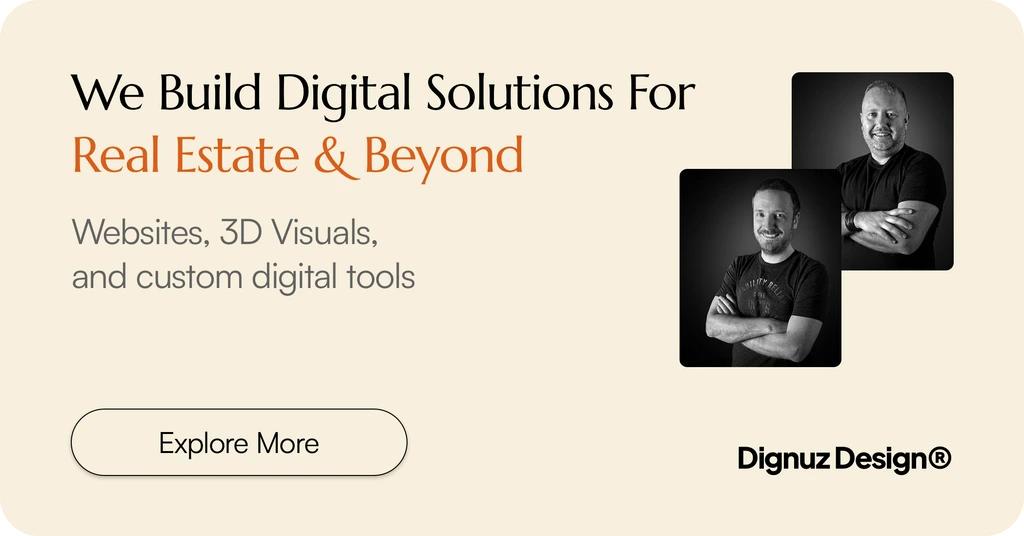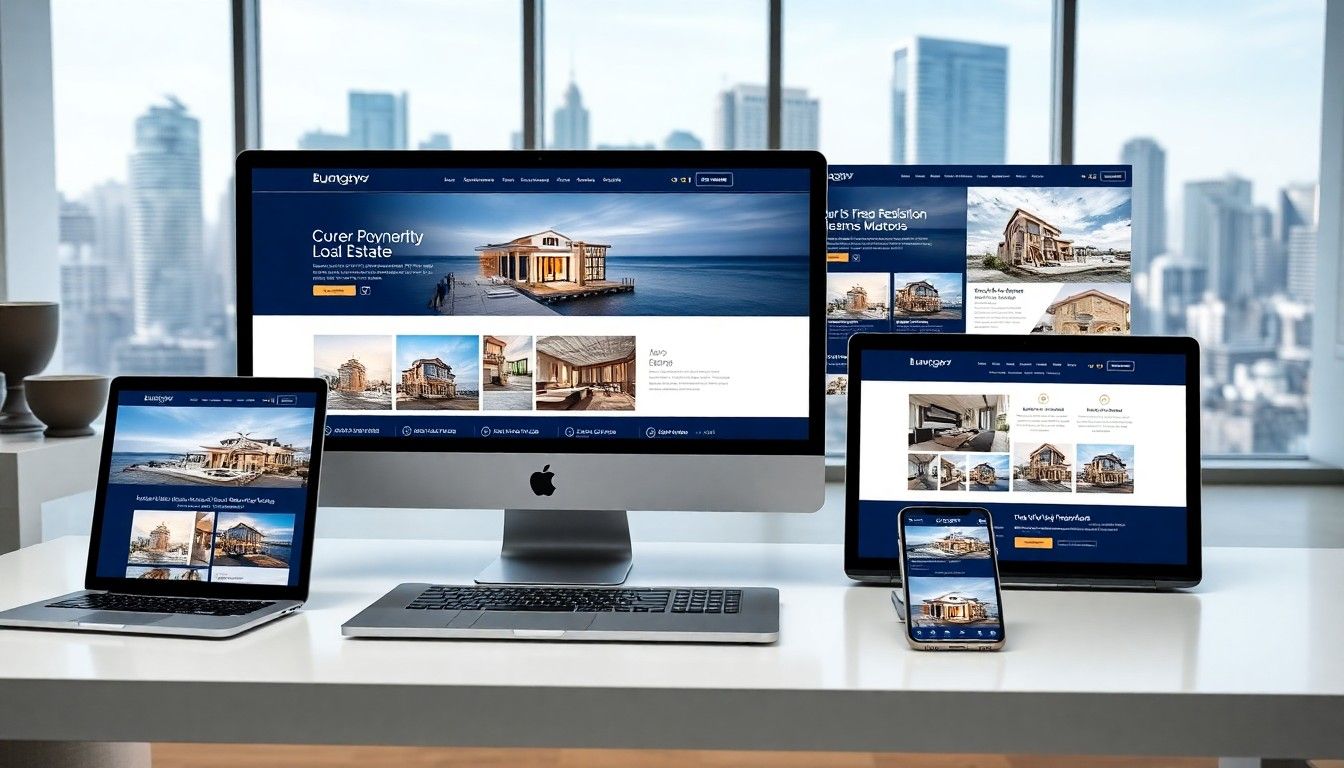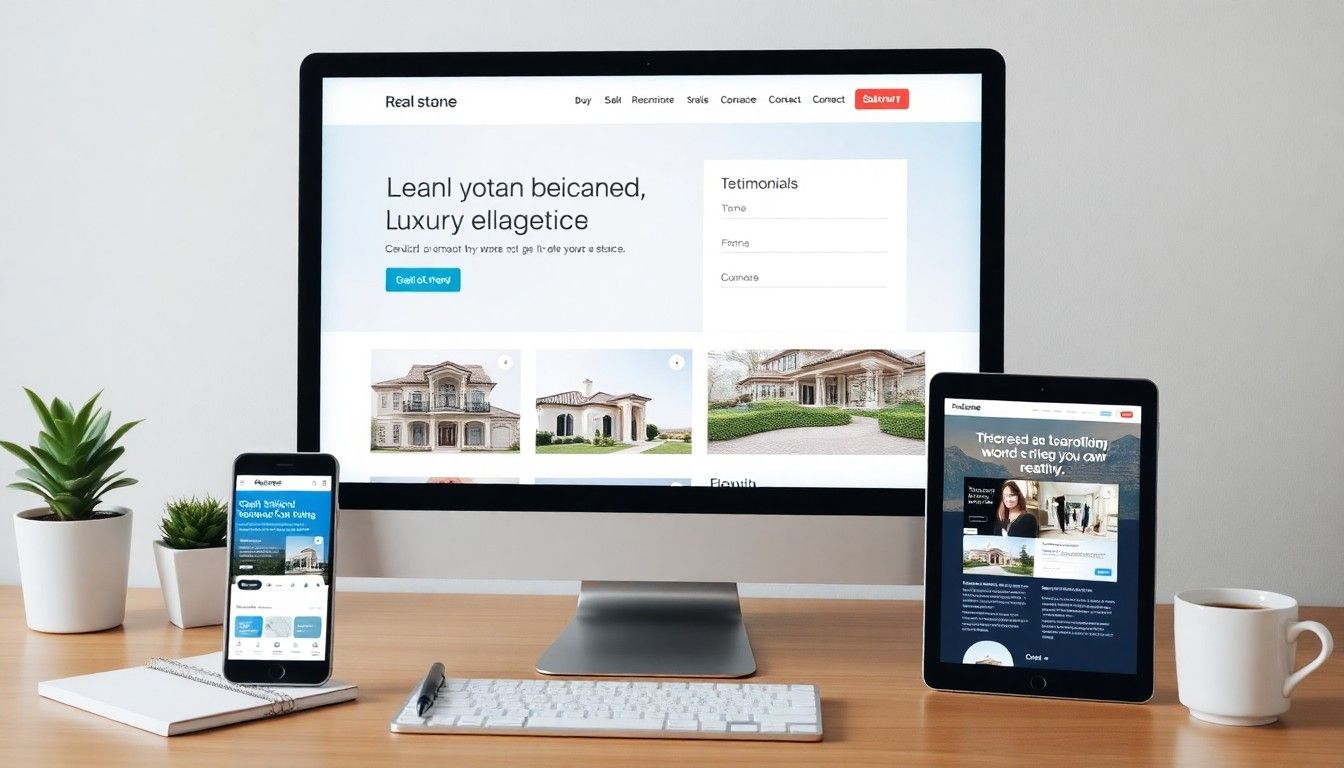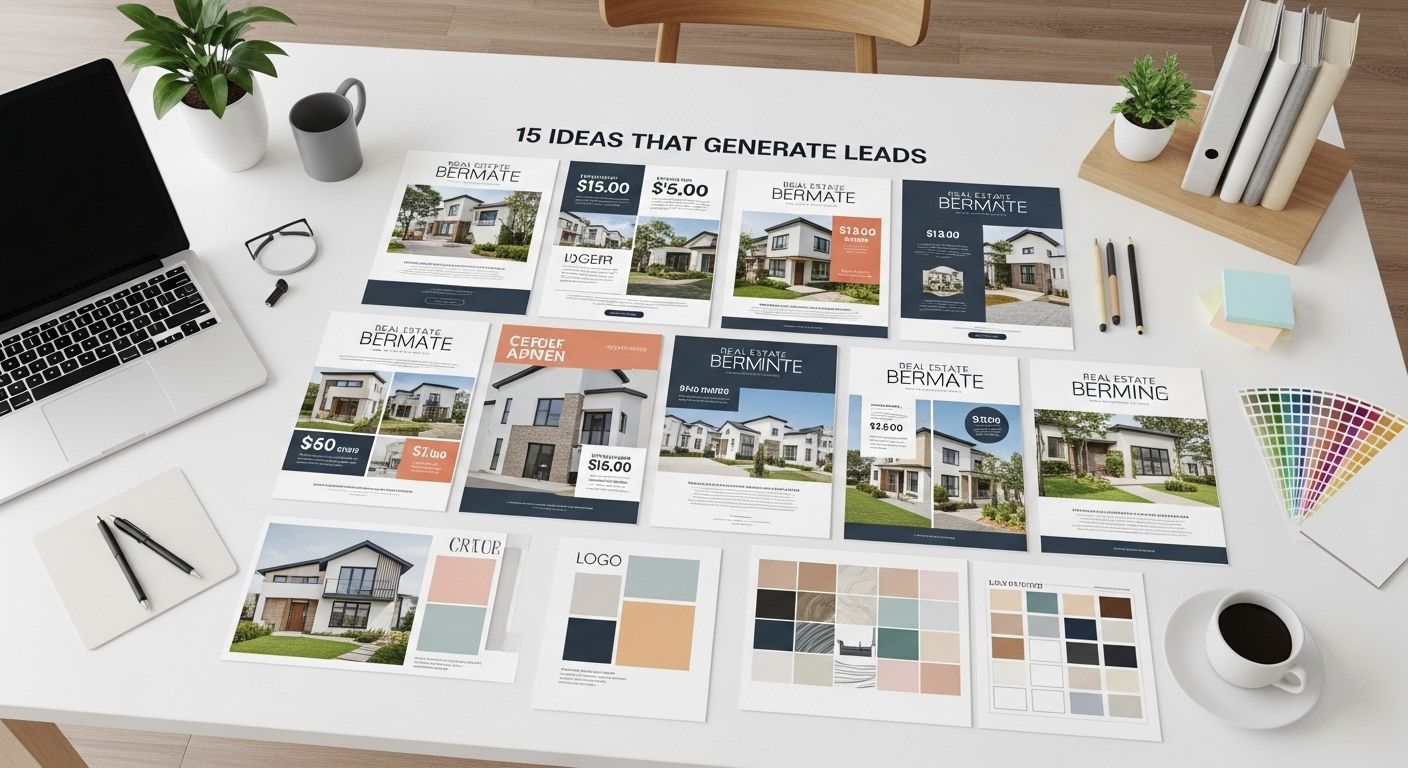How to Choose a Web Design Agency

A Step-by-Step Guide to Finding the Right Partner
Selecting the right web design agency is a critical business decision. Your website forms first impressions in just 0.05 seconds, with 94% of those initial judgments directly tied to design elements. (Source: VWO) This guide will walk you through the essential steps to find a web design partner who understands your vision and can transform it into a high-performing digital presence.
Whether you're creating a new website or redesigning an existing one, this decision impacts everything from brand perception to conversion rates. The right partnership leads to digital success. The wrong choice costs time, money, and opportunities.
Let's walk through a structured approach to evaluate and select the perfect web design agency for your specific needs.
Why Choosing the Right Web Design Agency Matters
Your website serves as your digital storefront. It shapes how potential customers perceive your business long before any direct interaction occurs. Research shows that 48% of users judge business credibility primarily through website design. (Source: Reboot Online) This makes your choice of web design partner tremendously important.
Poor design choices drive visitors away quickly. Studies reveal that 38% of users abandon sites with layouts or content they find unappealing. (Source: Hostinger) Even worse, 88% of online consumers are unlikely to return to a site after a negative experience. (Source: Reboot Online).
Beyond aesthetics, effective design directly impacts your bottom line. A strong user experience can increase conversion rates by up to 400%. (Source: Hostinger) This demonstrates why selecting the right design partner is a business-critical decision, not merely a creative choice.
The global web design market reached $58.5 billion in 2022 and is projected to hit $100 billion by 2031. (Source: VWO) With so many options available, how do you identify the perfect agency for your needs? The following sections will guide you through this process step by step.
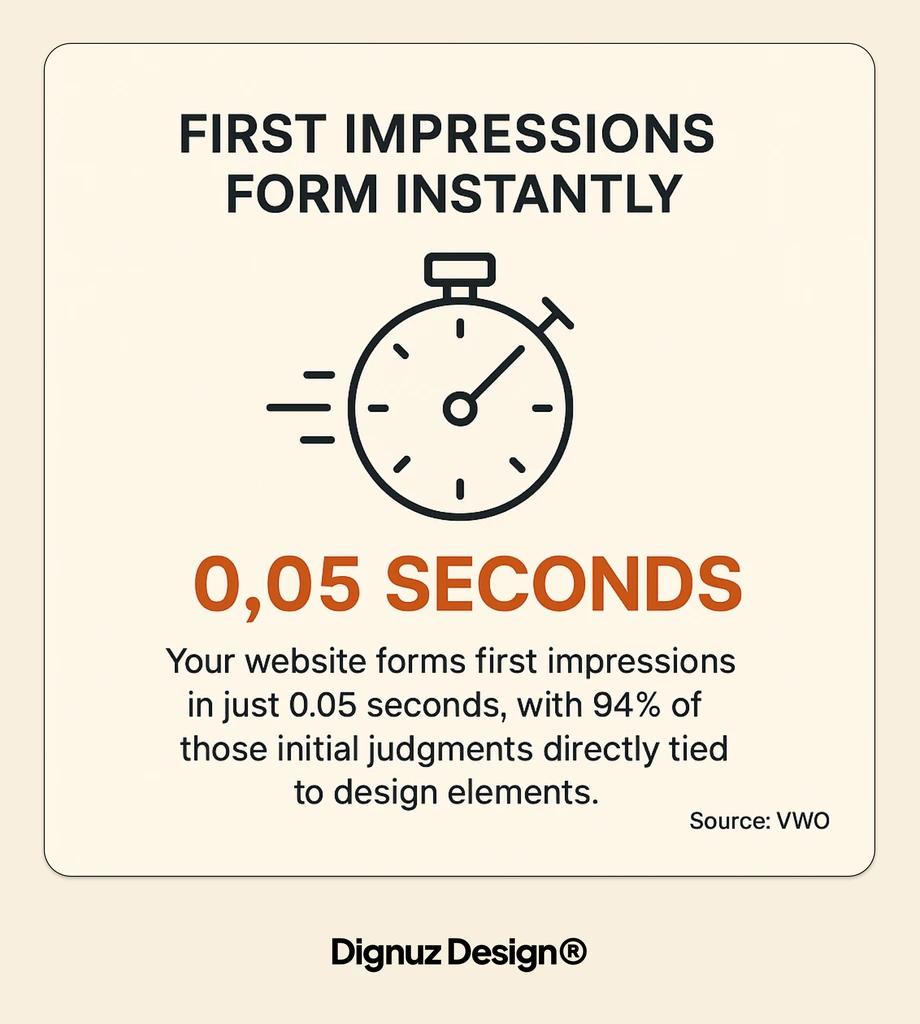
Define Your Website Goals and Requirements
Before contacting any agency, clarify what you want to achieve. Start with clear business objectives. Define measurable goals for your website project. This preparation helps you communicate your needs effectively.
Most successful website projects begin with thorough planning. Agencies work best when they understand your vision completely. Your clarity directly influences the quality of proposals you'll receive from potential partners.
Identify Your Core Website Objectives
Different businesses need different types of websites. An e-commerce site has different requirements than a portfolio showcase. A real estate website needs different features than a corporate page. Your objectives determine the expertise you need.
Consider both immediate needs and future growth. Your website should support your business as it evolves. The right agency can build flexibility into your digital foundation from the start.
- Lead generation - Capturing visitor information and nurturing prospects
- Brand awareness - Establishing your visual identity and messaging
- Online sales - Creating e-commerce functionality and payment processing
- Portfolio showcase - Displaying projects, properties or creative work
- Information resource - Educating visitors with valuable content
Understand Your Budget Constraints
Website projects vary enormously in cost. A basic small business site might cost $3,000-$10,000. Custom platforms with advanced functionality can exceed $50,000. Determine your investment range before contacting agencies.
Be realistic about your budget. Quality web design requires skilled professionals and adequate time. Cutting corners often leads to poor results and additional costs later. Consider the total cost of ownership, not just the initial build.
Most importantly, view your website as an investment rather than an expense. A well-designed site delivers returns through improved lead generation, customer engagement, and brand perception.
Basic Business Site:
- Typical Budget Range: $3,000-$10,000
- Timeline: 2-6 weeks
- Key Considerations: Branding, contact information, services overview
Custom Small Business:
- Typical Budget Range: $10,000-$25,000
- Timeline: 6-12 weeks
- Key Considerations: Custom design, content strategy, basic functionality
E-commerce Platform:
- Typical Budget Range: $15,000-$50,000+
- Timeline: 8-16 weeks
- Key Considerations: Product catalog, payment processing, inventory management
Enterprise Solution:
- Typical Budget Range: $50,000-$250,000+
- Timeline: 16-32 weeks
- Key Considerations: Complex functionality, systems integration, scalability
This budget overview helps set realistic expectations for your project scope. Remember that ongoing maintenance and updates will require additional investment after the initial build.
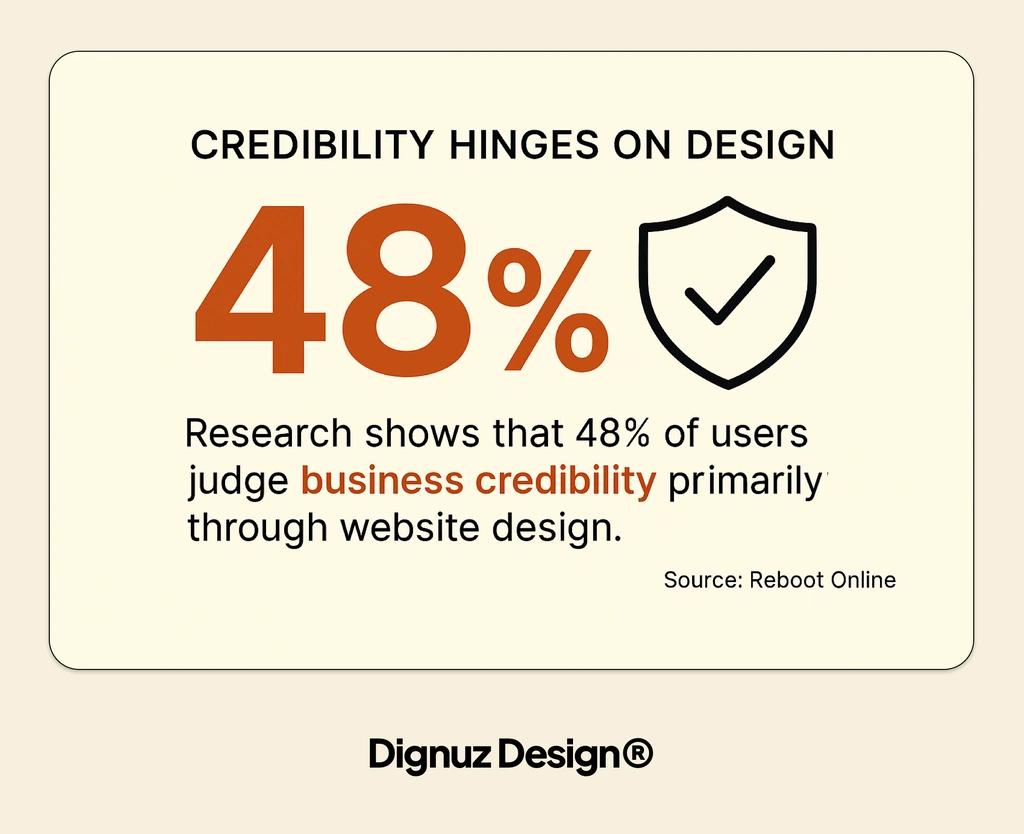
Technical Requirements Assessment
Document your specific technical needs before approaching agencies. Consider integration requirements with existing systems like CRMs or marketing platforms. Identify must-have functionality and features that support your business processes.
Technical platforms matter greatly. Some agencies specialize in specific content management systems or frameworks. Others offer custom development. Your technical choices affect long-term maintenance, scalability, and feature expansion.
For real estate businesses, specialized requirements might include property listing databases, virtual tours, or 3D visualization tools like interactive property showcases that help potential buyers explore spaces virtually.
Types of Web Design Agencies to Consider
The web design landscape includes many different types of service providers. Each offers distinct advantages and limitations. Understanding these differences helps you narrow your search to agencies that match your specific needs.
Agency sizes range from solo freelancers to multinational firms. Mid-sized specialized agencies often provide the best balance of personalized service and robust capabilities. Research shows that 25% of agencies manage 21-50 clients simultaneously, while 7% focus on 10 or fewer clients for more personalized service. (Source: VWO)
Consider how different agency models align with your project requirements. Each type brings different strengths to the table. Your selection should reflect both your immediate needs and long-term partnership goals.
Full-Service Digital Agency:
- Best For: Comprehensive digital strategy needs
- Typical Strengths: End-to-end services, marketing integration
- Potential Limitations: Higher costs, less specialized expertise
Specialized Web Design Studio:
- Best For: Design-focused projects
- Typical Strengths: Creative excellence, design innovation
- Potential Limitations: May need partners for development/marketing
Web Development Firm:
- Best For: Complex functionality requirements
- Typical Strengths: Technical expertise, custom solutions
- Potential Limitations: Sometimes less focus on visual design
Platform Specialists (e.g., Webflow):
- Best For: Projects needing specific platform expertise
- Typical Strengths: Deep knowledge of platform capabilities
- Potential Limitations: Limited to specific technology ecosystem
Freelance Designers:
- Best For: Small projects, tight budgets
- Typical Strengths: Cost-effective, direct communication
- Potential Limitations: Limited capacity, fewer services
This comparison highlights how different agency types align with various project needs. Your choice should reflect both your current requirements and future digital growth plans.
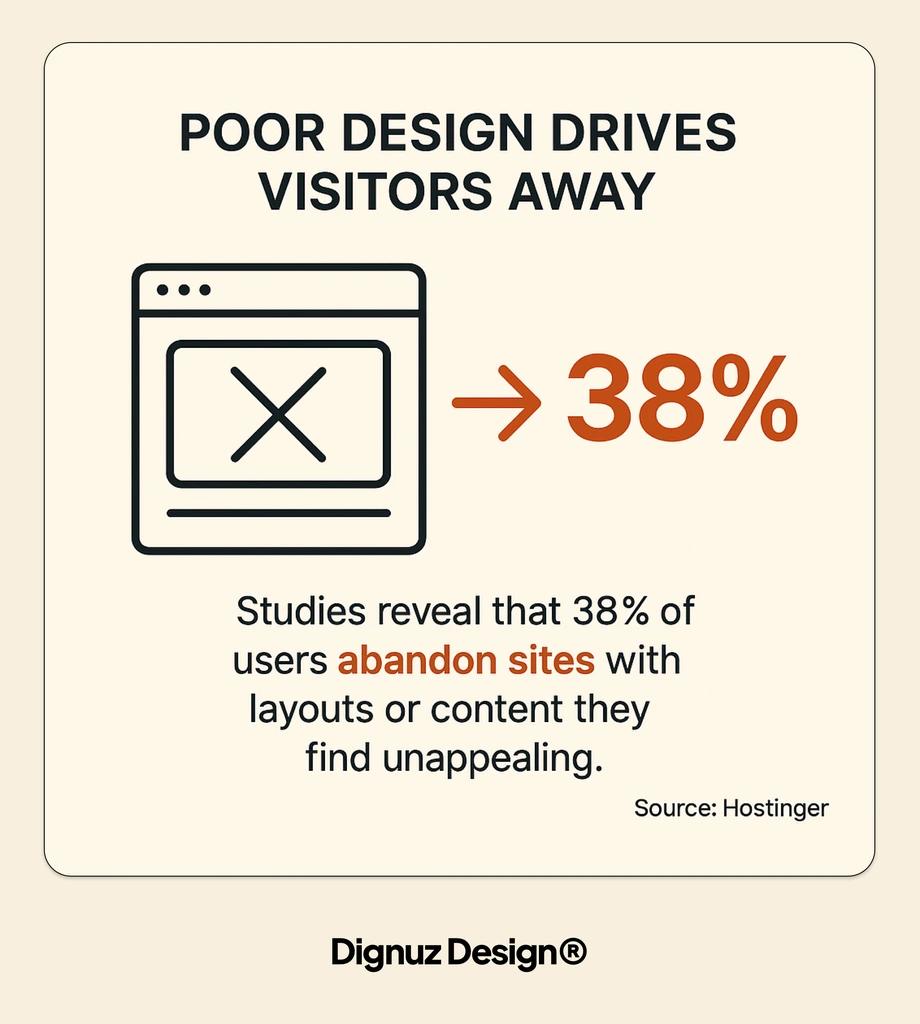
Industry-Specific Design Expertise
Some agencies specialize in specific industries like real estate, healthcare, or e-commerce. These specialists understand sector-specific requirements and best practices. They often use specialized tools tailored to their focus industries.
Commercial designers typically favor tools like Revit and Material Bank, while residential design professionals more commonly use AutoCAD and SketchUp. (Source: ThinkLab) This specialized knowledge translates to more effective digital solutions for your particular business context.
Consider agencies with experience in your specific industry. Their familiarity with your sector's needs and challenges often leads to more effective solutions. Custom websites tailored to specific industries typically outperform generic templates because they address unique user expectations and business requirements.
Essential Criteria for Evaluating Web Design Agencies
Once you've identified potential agencies, you need systematic evaluation criteria. These benchmarks help you compare options objectively. Focus on measurable factors rather than subjective impressions.
Develop a scoring system for comparing different agencies. This structured approach prevents decisions based purely on emotion or impressive sales pitches. It ensures your choice aligns with your actual business requirements.
Portfolio Quality and Relevance
An agency's previous work reveals their capabilities better than any sales pitch. Review their portfolio thoroughly. Look beyond surface aesthetics to assess functionality, usability, and results achieved for clients.
Seek work samples relevant to your industry or project type. While creative range matters, experience in your specific sector often leads to better outcomes. Pay attention to the details that matter for your particular business goals.
When examining portfolios, consider these key aspects:
- Design aesthetics - Visual appeal and brand alignment
- User experience - Navigation structure and information architecture
- Responsive design - How sites adapt to different devices
- Functionality - Interactive elements and technical features
- Content integration - How text, images and media work together
Technical Capabilities Assessment
Modern websites require various technical competencies. Evaluate agencies' expertise in areas relevant to your project. Consider their experience with specific platforms, programming languages, or specialized tools needed for your website.
Mobile optimization deserves particular attention. Research shows that 90% of modern websites prioritize mobile adaptability, reflecting changing user behavior. (Source: Hostinger) Ensure your chosen agency excels at creating responsive designs that work flawlessly across all devices.
Technical performance impacts user experience significantly. Slow-loading images cause 39% of users to disengage from websites. (Source: Hostinger) Evaluate potential partners on their ability to optimize site performance and loading speeds.
Process Transparency and Project Management
Effective agencies follow structured, transparent processes. Ask candidates to explain their workflow from initial consultation through launch and beyond. This reveals their organizational capabilities and communication approach.
Project management methodology affects your experience as a client. Some agencies use agile approaches with frequent iteration and feedback. Others follow more traditional waterfall methods. Choose a style that aligns with your communication preferences.
Request detailed timelines and milestone breakdowns. Clear project plans indicate professional operations. They also help set realistic expectations for your involvement throughout the process.
Portfolio Quality:
- What to Look For: Relevant work examples, consistent quality
- Red Flags: Limited samples, dated designs
- Questions to Ask: "Can you show examples similar to our project?"
Technical Expertise:
- What to Look For: Experience with needed technologies
- Red Flags: Vague technical explanations
- Questions to Ask: "How do you approach responsive design?"
Project Management:
- What to Look For: Clear process, defined milestones
- Red Flags: Ambiguous timelines, poor communication
- Questions to Ask: "What project management tools do you use?"
Client References:
- What to Look For: Positive testimonials, verifiable results
- Red Flags: No references, generic testimonials
- Questions to Ask: "Can I speak with some of your current clients?"
Value Alignment:
- What to Look For: Understanding of your industry/goals
- Red Flags: One-size-fits-all approaches
- Questions to Ask: "How would you approach our specific challenges?"
This evaluation framework provides structure for comparing potential partners objectively. Apply these criteria consistently across all candidates to identify the best match for your needs.
undefined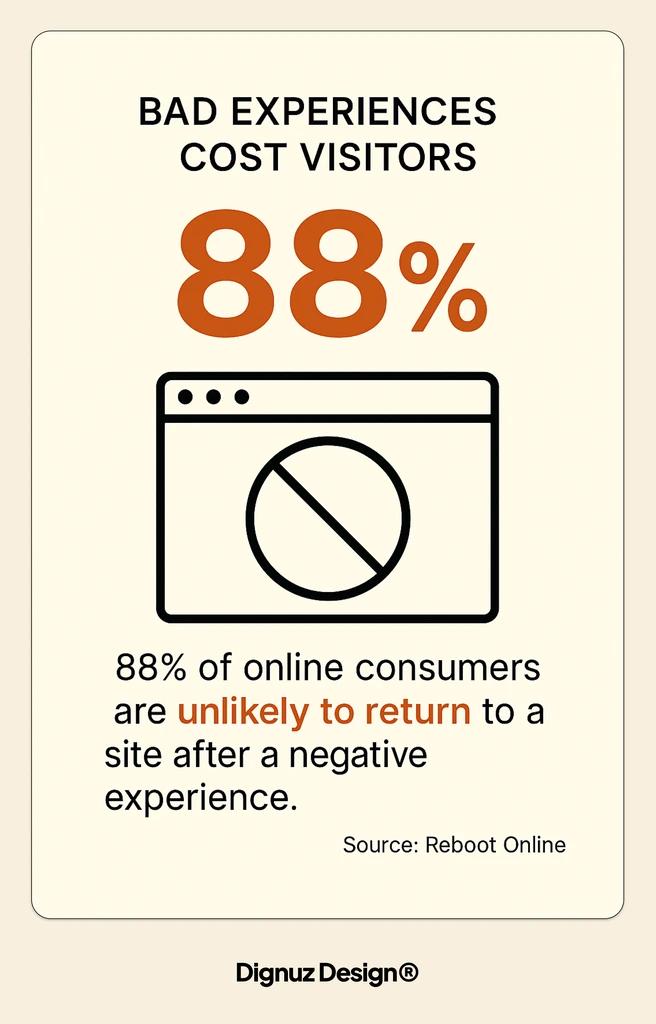
Communication Style and Cultural Fit
Successful agency relationships depend on effective communication. Evaluate responsiveness during your initial interactions. Pay attention to how well they listen and how clearly they explain concepts.
Cultural alignment between your organization and the agency matters greatly. Shared values and working styles reduce friction during the project. Consider whether their communication style and company culture complement your own.
The best partnerships feel collaborative rather than transactional. Seek agencies that position themselves as partners in your success rather than simply service providers. This mindset creates better outcomes through genuine investment in your goals.
Red Flags to Watch Out For
While identifying positive qualities is important, recognizing warning signs is equally valuable. Certain behaviors or business practices indicate potential problems. Learn to spot these red flags early in your selection process.
Trust your instincts when something doesn't feel right. Professional agencies maintain consistent standards in all client interactions. Early warning signs often predict larger issues that could emerge during your project.
Pricing Transparency Issues
Vague or constantly changing price estimates suggest potential problems. Reputable agencies provide clear, detailed proposals that outline exactly what you'll receive for your investment. They explain their pricing structure transparently.
Be wary of quotes significantly lower than other estimates. Unusually low prices often indicate cut corners, hidden fees, or inexperience. Quality web design requires adequate time and professional expertise, which have real costs.
The absence of a formal contract or detailed scope document is a serious concern. Professional agencies document all agreements clearly to protect both parties. This includes deliverables, timelines, payment terms, and ownership rights.
Portfolio and Expertise Concerns
Carefully examine portfolios for authenticity and relevance. Some less reputable agencies display work they didn't actually create or claim credit for projects where they played only a minor role. Verify examples through client testimonials or direct links.
Limited or outdated portfolio work raises questions about current capabilities. Web design evolves rapidly, with 93% of designers now using AI tools for tasks like rendering and asset creation. (Source: Hostinger) Ensure the agency demonstrates current technical and design approaches.
Be cautious if an agency claims expertise in everything without specialization. True expertise requires focus. The most effective partners have clear strengths and are honest about limitations. They may collaborate with specialists for areas outside their core competencies.
Communication and Responsiveness Issues
Poor communication during initial contact often worsens during projects. If an agency is slow to respond to inquiries or unclear in explanations before you've signed, these issues typically intensify once work begins.
Watch for dismissive attitudes toward your questions or requirements. Effective partners take your input seriously and provide thoughtful responses. They view client collaboration as essential to project success rather than an inconvenience.
Accessibility issues for key team members can indicate resource constraints. Ensure you'll have direct contact with the people actually working on your project, not just account managers. Understanding the team structure helps set realistic communication expectations.
Pricing Issues:
- Warning Signs: Vague quotes, frequent upselling, hidden fees
- Potential Impact: Budget overruns, scope disputes
- Risk Level: High
Portfolio Concerns:
- Warning Signs: Can't verify work, dated designs, similar templates
- Potential Impact: Subpar design quality, limited capabilities
- Risk Level: High
Communication Problems:
- Warning Signs: Slow responses, unclear answers, dismissive tone
- Potential Impact: Project delays, misaligned expectations
- Risk Level: Medium
Process Ambiguity:
- Warning Signs: No clear methodology, vague timelines
- Potential Impact: Missed deadlines, disorganized execution
- Risk Level: Medium
Technical Limitations:
- Warning Signs: Inability to explain solutions, outdated methods
- Potential Impact: Performance issues, limited functionality
- Risk Level: High
This risk assessment helps identify potential problems before they affect your project. Take these warning signs seriously, as they often predict significant challenges in agency relationships.
The Agency Selection Process: Step-by-Step
Finding the right web design partner requires a structured approach. Follow these steps to identify, evaluate, and select an agency that matches your specific needs. This methodical process helps you make an informed decision.
Allocate adequate time for proper evaluation. Rushing this process often leads to poor partnerships. A thorough selection typically takes 2-4 weeks, depending on project complexity and the number of candidates you're considering.
Initial Research and Shortlisting
Begin with comprehensive research to identify potential candidates. Use industry directories, referrals from colleagues, search engines, and social media to create an initial list. Focus on agencies with experience relevant to your project type and industry.
Review online presence and reputation for each candidate. Check websites, social media profiles, and review platforms for insights into their work quality and client relationships. Look for consistency across all channels.
Create a shortlist of 3-5 agencies that appear to match your criteria. This manageable number allows thorough evaluation while providing sufficient options. Document your reasons for including each candidate on your shortlist.
Preliminary Contact and Screening
Reach out to shortlisted agencies with a brief project overview. Note their responsiveness and the quality of initial interactions. Professional agencies acknowledge inquiries promptly and ask thoughtful questions about your needs.
Request preliminary information about their services, process, and typical clients. Their response provides insights into communication style and organizational capabilities. Pay attention to both what they say and how they say it.
Conduct screening calls with promising candidates. These brief conversations help assess communication style and determine whether more in-depth discussions are warranted. Prepare specific questions about their experience with projects similar to yours.
Detailed Evaluation and Proposal Review
Request formal proposals from your top choices. Provide a detailed brief outlining your objectives, requirements, budget parameters, and timeline. The more information you provide, the more accurate their proposals will be.
Evaluate proposals based on the criteria established earlier. Compare approaches, timelines, deliverables, and pricing structures. Look for clarity, completeness, and alignment with your specific requirements rather than generic solutions.
Schedule in-depth presentations with finalists. These meetings allow agencies to explain their proposals and answer detailed questions. Pay attention to their preparation, presentation quality, and ability to address your specific concerns.
Final Verification and Decision
Contact client references for your top candidates. Prepare specific questions about working relationships, project outcomes, and any challenges encountered. First-hand accounts from current or recent clients provide valuable insights into the actual client experience.
Review contracts carefully before making final decisions. Ensure all agreements clearly outline deliverables, timelines, payment terms, and ownership rights. Consider having legal counsel review significant contracts to protect your interests.
Make your final selection based on comprehensive evaluation rather than a single factor. The right partner offers the best combination of expertise, process alignment, communication style, and value - not necessarily the lowest price or most impressive portfolio.
Pre-Selection Research Checklist
Before contacting any agencies, complete this research to prepare for meaningful conversations:
- Define project goals and specific requirements
- Establish budget parameters and timeline constraints
- Identify must-have technical features and functionality
- Research industry-standard pricing for comparable projects
- Collect examples of websites you admire (and why)
This preparation helps you evaluate whether platforms like Webflow might meet your needs and have more productive conversations with potential design partners.
Questions to Ask Potential Web Design Agencies
Asking the right questions helps reveal an agency's capabilities and approach. These inquiries go beyond basic information to assess how they would handle your specific project. Their answers reveal expertise, process maturity, and potential fit.
Prepare a standardized question list to use with all candidates. This consistency allows for more accurate comparisons. Document responses thoroughly to reference during your final decision-making process.
Design Process and Methodology Questions
Understanding an agency's design methodology reveals how they approach problem-solving. Ask detailed questions about their process from concept through completion. Look for structured approaches that incorporate user needs and business objectives.
Inquire about research practices and user-centered design principles. Strong agencies conduct thorough discovery before design begins. They should explain how they translate business goals into effective design solutions.
Discuss revision processes and feedback incorporation. Clear protocols for revisions indicate mature operations. Understand how they handle change requests and the number of revision rounds included in their standard process.
Technical Capability Questions
Technical questions help assess an agency's development capabilities. Ask about their experience with specific platforms or technologies relevant to your project. Their answers should demonstrate both expertise and honesty about limitations.
Inquire about responsive design approaches. With mobile traffic dominating many industries, understanding how they create adaptive experiences is crucial. Their answers should reflect current best practices rather than outdated techniques.
Discuss performance optimization strategies. Site speed significantly impacts user experience and search rankings. Ask how they address performance challenges and their testing processes for ensuring optimal loading times across devices.
Project Management and Communication Questions
Clear project management processes predict successful outcomes. Ask about their approach to timeline development, milestone tracking, and progress reporting. Look for structured methodologies that provide visibility throughout the project.
Understand communication protocols and expectations. Determine primary contact points, communication frequency, and available channels. Ensure their communication style aligns with your preferences and organizational needs.
Discuss potential challenges and resolution approaches. How agencies handle problems reveals much about their professionalism. Ask about common project challenges and their strategies for overcoming obstacles while maintaining momentum.
Design Process:
- Questions to Ask: "How do you translate business goals into design decisions?" "What research do you conduct before design begins?"
- What to Listen For: Structured approach, user focus, business alignment
Technical Capabilities:
- Questions to Ask: "How do you approach responsive design?" "What performance optimization techniques do you use?"
- What to Listen For: Current best practices, testing methods, technical depth
Project Management:
- Questions to Ask: "How do you track project progress?" "What happens if we fall behind schedule?"
- What to Listen For: Clear processes, contingency planning, accountability
Post-Launch Support:
- Questions to Ask: "What support do you provide after launch?" "How do you handle maintenance and updates?"
- What to Listen For: Ongoing partnership approach, support options, accessibility
Results Measurement:
- Questions to Ask: "How do you measure project success?" "What metrics do you track after launch?"
- What to Listen For: Data-driven approach, alignment with business goals
These structured questions help evaluate agencies comprehensively. Their responses reveal not just capabilities but also how they approach client relationships and problem-solving.
Ongoing Support and Maintenance Questions
Website launches mark the beginning, not the end, of your digital presence. Discuss post-launch support options and ongoing maintenance approaches. Understand what happens after your site goes live and how future updates are handled.
Inquire about training and knowledge transfer. Effective agencies empower clients with the skills and documentation needed to manage their websites. Ask about training sessions, documentation, and self-service resources they provide.
Discuss long-term partnership possibilities. Websites evolve as businesses grow and technologies change. Understanding an agency's approach to ongoing relationships helps determine whether they're suitable for both immediate needs and future developments.
Strong partners offer powerful integration capabilities that connect your website with essential business tools like CRM systems, marketing platforms, and analytics solutions. Ask specific questions about their experience with integrations relevant to your business operations.
Making Your Final Decision
After thorough research and evaluation, you're ready to make your final selection. This decision synthesizes all gathered information into a clear choice. Trust both your analytical assessment and intuitive judgment about which partner best serves your needs.
Remember that choosing a web design agency establishes a relationship that typically lasts months or years. Consider both immediate project requirements and long-term partnership potential. The right choice creates value well beyond the initial website launch.
Proposal Comparison and Value Assessment
Compare final proposals systematically against your requirements. Create a scoring matrix that weights factors according to their importance for your specific project. This structured comparison prevents decisions based solely on price or subjective preferences.
Evaluate total value rather than just cost. The cheapest option rarely provides the best long-term value. Consider expertise, process quality, support options, and potential ROI alongside price when assessing overall value proposition.
Review all pricing details carefully. Ensure you understand exactly what's included and what might incur additional costs. Clarify payment schedules, milestone deliverables, and any contingencies that could affect final pricing.
Contract Review and Negotiation
Review contracts thoroughly before signing. Pay special attention to scope definitions, deliverable specifications, timeline commitments, and revision allowances. Ensure all verbal agreements are reflected in writing.
Understand ownership and licensing clearly. Professional contracts specify who owns the design, code, and content created during the project. Ensure you retain appropriate rights to all elements essential for your business.
Negotiate terms that protect both parties. Fair contracts create successful partnerships through clear expectations and shared responsibilities. Don't hesitate to request reasonable modifications that address your specific concerns.
- Scope definition - Detailed description of all deliverables
- Timeline commitments - Specific milestones with dates
- Payment terms - Amounts, schedule, and conditions
- Revision policy - Number of revision rounds included
- Ownership rights - Who owns design, code, and content
Preparing for Project Kickoff
Once you've selected your partner, prepare for an effective project start. Gather all relevant materials and information they'll need. This preparation accelerates the initial phases and demonstrates your commitment to the partnership.
Establish communication protocols and team responsibilities. Identify key stakeholders from both organizations and clarify their roles. Creating clear channels and expectations prevents confusion during the project.
Schedule a formal kickoff meeting to align all participants. This initial session establishes shared understanding of goals, approaches, and expectations. It also builds relationships between team members who will collaborate throughout the project.
Post-Selection Preparation
After selecting your agency partner, complete these steps to ensure a strong project start:
- Assemble brand assets (logos, colors, fonts, style guides)
- Prepare content strategy and initial content drafts
- Identify team members who will participate in the project
- Document technical requirements and access credentials
- Establish internal approval processes for design reviews
These preparations demonstrate your commitment and help your new partner deliver results efficiently.
Conclusion
Choosing the right web design agency requires thoughtful evaluation of multiple factors. This guide has walked you through a structured approach to finding a partner who aligns with your business objectives, technical requirements, and collaborative preferences.
Remember that your website directly impacts how potential customers perceive your business. With 48% of users judging business credibility primarily through website design, this decision significantly influences your digital success. (Source: Reboot Online)
The perfect agency partnership balances expertise, communication, value, and cultural fit. By following this systematic selection process, you'll identify a partner who can transform your vision into an effective digital presence that drives meaningful business results.
Take your time with this important decision. The effort invested in proper agency selection pays dividends through smoother projects, better outcomes, and stronger long-term digital performance for your business.
